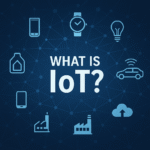The modern home is rapidly evolving, and smart home devices are leading this transformation. Whether you’re looking to enhance security, improve energy efficiency, or simply add convenience to your daily routine, the right smart home technology can revolutionize how you interact with your living space. Moreover, with advances in artificial intelligence and IoT connectivity, these devices have become more accessible and user-friendly than ever before.
As we navigate through 2024, the smart home market continues to expand with innovative solutions that cater to every aspect of domestic life. From voice-activated assistants to intelligent security systems, these devices not only provide convenience but also contribute to energy savings and enhanced home security. Furthermore, the integration capabilities of modern smart home devices allow for seamless automation that can adapt to your lifestyle preferences.
Essential Smart Home Devices for Modern Living
Choosing the right smart home devices can seem overwhelming given the vast array of options available. However, by focusing on devices that offer the greatest impact on daily life, homeowners can create a connected ecosystem that truly enhances their living experience. Additionally, investing in quality smart home technology can increase property value while reducing long-term utility costs.
1. Smart Thermostats
Smart thermostats represent one of the most impactful smart home devices for both comfort and energy efficiency. These intelligent systems learn your heating and cooling preferences, automatically adjusting temperatures based on occupancy patterns and weather conditions. Popular models like the Nest Learning Thermostat and Ecobee SmartThermostat can reduce energy bills by up to 15% annually.
Key Benefits:
- Automatic temperature optimization based on daily routines
- Remote control via smartphone applications
- Energy usage reports and recommendations
- Integration with other smart home platforms
2. Smart Security Cameras and Doorbells
Security remains a top priority for homeowners, and smart security devices provide comprehensive monitoring solutions. Video doorbells and security cameras with AI-powered features can distinguish between package deliveries, visitors, and potential intruders. Consequently, these devices offer peace of mind whether you’re at home or traveling.
Advanced Features Include:
- Real-time motion detection with smartphone alerts
- Two-way audio communication capabilities
- Cloud storage for video recordings
- Night vision and weather-resistant construction
3. Voice-Activated Smart Speakers
Smart speakers serve as the central hub for many smart home ecosystems. Amazon Echo, Google Nest Audio, and Apple HomePod provide voice control for numerous connected devices while offering entertainment, information, and communication services. These devices have become increasingly sophisticated, supporting natural language processing and contextual conversations.
4. Smart Lighting Systems
Intelligent lighting solutions go far beyond simple on-off functionality. Smart bulbs and lighting systems can adjust color temperature, brightness, and timing to support circadian rhythms and create ambiance for different activities. Phillips Hue and LIFX systems exemplify how lighting can enhance both functionality and aesthetics in modern homes.
These systems offer scheduling capabilities, geofencing activation, and integration with other smart home devices for comprehensive automation scenarios.
5. Smart Door Locks
Smart door locks eliminate the need for traditional keys while providing enhanced security features. These devices support multiple access methods including smartphones, keypads, and biometric sensors. Additionally, smart locks maintain detailed access logs and can provide temporary access codes for guests or service providers.
6. Robot Vacuum Cleaners
Robotic vacuum cleaners have evolved into sophisticated cleaning systems that map home layouts, avoid obstacles, and return to charging stations automatically. Premium models like the Roomba i7+ and Roborock S7 MaxV feature self-emptying capabilities and can be scheduled for specific rooms or areas through mobile applications.
Advanced Smart Home Integration
7. Smart Smoke and Carbon Monoxide Detectors
Next-generation smoke detectors provide smartphone alerts and can differentiate between different types of emergencies. The Nest Protect, for example, uses voice alerts to specify the type and location of detected dangers, while also testing itself regularly to ensure optimal functionality.
8. Smart Water Leak Detectors
Water damage can be catastrophic and expensive to repair. Smart water leak detectors monitor humidity levels and water presence in critical areas like basements, bathrooms, and near water heaters. These devices can automatically shut off water supply when leaks are detected, potentially saving thousands in damage costs.
9. Smart Plugs and Outlets
Smart plugs represent an affordable entry point into home automation. These devices can transform any appliance into a connected device, enabling remote control and scheduling. Furthermore, smart plugs provide energy monitoring capabilities that help identify power-hungry devices and optimize electricity usage.
10. Smart Garage Door Openers
Smart garage door systems provide remote monitoring and control capabilities while maintaining detailed access logs. These devices can send alerts when doors are left open and integrate with home security systems for comprehensive protection. MyQ and Chamberlain smart garage door openers exemplify reliability and feature-rich functionality.
Implementation Considerations
When selecting smart home devices, compatibility with existing systems should be a primary consideration. Major platforms like Amazon Alexa, Google Assistant, and Apple HomeKit offer different advantages and device support levels. Therefore, choosing devices that work within your preferred ecosystem ensures seamless integration and optimal functionality.
Network infrastructure also plays a crucial role in smart home performance. A robust Wi-Fi network with adequate coverage throughout the home is essential for reliable device operation. Additionally, consider devices that support Wi-Fi 6 for future-proofing your smart home investment.
The integration of smart home devices represents more than just technological advancement; it’s about creating a living space that anticipates your needs and enhances your quality of life. These ten categories of smart home devices provide a comprehensive foundation for building an intelligent home environment that grows with your lifestyle.
As you begin your smart home journey, start with one or two devices that address your most pressing needs, then gradually expand your ecosystem. Remember that the best smart home setup is one that seamlessly integrates into your daily routine while providing tangible benefits in comfort, security, and efficiency. Take the first step today by identifying which of these smart home devices would make the greatest impact on your living space, and begin transforming your house into the connected home of the future.




Pingback: The Impact of E-Waste and How to Recycle Electronics Properly -
Pingback: How Artificial Intelligence is Changing Everyday Life -